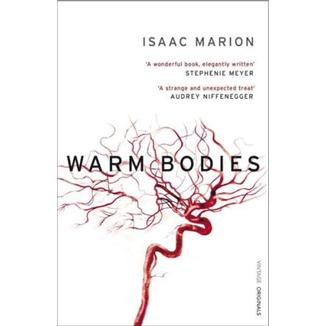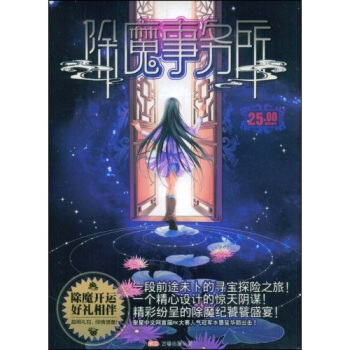#电子书截图
#电子书简介
(Stephenie Meyer, #1 New York Times Bestselling author of the Twilight series)
“A mesmerising evolution of a classic contemporary myth.”
(Simon Pegg, New York Times bestselling author of Nerd Do Well)
“Warm Bodies is a terrific book—a compelling literary fantasy which is also a strange and affecting pop-culture parable.”
(Nick Harkaway, author of The Gone-Away World)
“Isaac Marion has a great new voice that hooks you from page one and accomplishes the impossible: it makes you care about young zombie love. Warm Bodies is a terrific read.”
(Josh Bazell, New York Times bestselling author of Beat the Reaper)
“Enormous fun.”
(Marie Claire (UK))
“Wryly playful, cinematic, and ultimately moving.”
(Time Out London)
“Has there been a more sympathetic monster since Frankenstein's?”
(The Financial Times)
“It’s got the boarded-up strongholds and mob mentality of Night of the Living Dead—but also romance. As the evil thing resists its evil nature, the book neuters zombies in the same way Stephanie Meyer did vampires.”
(Time Out NY)
“If you haven't caught on to Isaac Marion's writing yet, you're really missing out.”
(About.com)
“In elegant, evocative prose, Marion has fashioned the world’s most unlikely romance in a story that is by turns harrowing, poignant, and tender. At the last, the reader is reminded that we are all ultimately human, whether living or dead. Utterly charming.”
(Library Journal (starred review))
After experiencing a teenage boy's memories while consuming his brain, R makes an unexpected choice that begins a tense, awkward, and stragely sweet relationship with the victim's human girlfriend. Julie is a blast of color in the otherwise dreary and gray landscape that surrounds R. His decision to protect her will transform not only R, but his fellow Dead, and perhaps their whole lifeless world.
Scary, funny, and surprisingly poignant, Warm Bodies is about being alive, being dead, and the blurry line in between.
《温暖的尸体》讲述了一个叫做“R”的僵尸和一个他杀死的人类的女友之间的浪漫关系,这段关系引发了连锁反应,不仅改变了他和他的僵尸伙伴,也改变了整个僵尸世界。
一场末日浩劫后的未来,神秘的病毒毁灭了文明,受害者丧失过去的记忆,变身为吃活人的僵尸,幸存的人类建立起坚固的高墙堡垒,以防止饥饿的僵尸们,成群结队闯进来猎食…。然而,这种看似传统活尸片的背景设定,却因男主角R的出现而颠覆一切!R是个没有记忆、心跳的僵尸,却怀抱着许多梦想,他的内心世界充满惊奇与渴望。某日R正在猎食人类时,竟然煞到了一位温暖、灿烂的活生生女孩茱莉,R不但没吃掉她的脑袋,还决定救她一命,让她免于遭受R的僵尸同伴吞噬。 对原本形如槁木死灰的R而言,茱莉的出现,简直是苍灰阴郁中一抹奔放艳丽的色彩。于是一段紧张而又异常温柔的甜蜜关系就此展开。
R悄悄把茱莉带回他称为家的地方,即一座满布僵尸的机场,并让她躲在一架废弃的767波音客机上,里面有他到处搜集而来的“宝藏”,包括黑胶唱片、雪景水晶球、乐器等。接下来的几天,他们在这个隐匿处意外地共度了惬意的日子,在不知不觉之中,活泼的茱莉唤起R遗忘已久的人性情感,而她也开始了解到他不只是个慢动作、眼神呆滞的行尸走肉。
茱莉很困惑自己对于R的感情,于是带着复杂情绪返回人类城市。她父亲是无情的僵尸猎人,领导人类大军捍卫他们仅存的高墙家园。同时,害相思病的R开始产生前所未有的改变,他相信自己与茱莉的相知相惜能够拯救无论是生是死的人类,不过他出现在她家门口时,很快就掀起活人和僵尸(以及皮包骨)之间的全面性混战,而这也威胁到这一对奇迹恋人未来能否在一起的可贵机会。
这种事从没发生过,不但不合逻辑,也违背了规矩,不但改变了R,也改变他的僵尸同伴,甚至让死气沉沉的世界出现了生机。然而,在那阴森腐败的世界里,想要完成梦想,他们还需要一场革命……
None of us are particularly attractive, but death has been kinder to me than some. I’m still in the early stages of decay. Just the gray skin, the unpleasant smell, the dark circles under my eyes. I could almost pass for a Living man in need of a vacation. Before I became a zombie I must have been a businessman, a banker or broker or some young temp learning the ropes, because I’m wearing fairly nice clothes. Black slacks, gray shirt, red tie. M makes fun of me sometimes. He points at my tie and tries to laugh, a choked, gurgling rumble deep in his gut. His clothes are holey jeans and a plain white T-shirt. The shirt is looking pretty macabre by now. He should have picked a darker color.
We like to joke and speculate about our clothes, since these final fashion choices are the only indication of who we were before we became no one. Some are less obvious than mine: shorts and a sweater, skirt and a blouse. So we make random guesses.
You were a waitress. You were a student. Ring any bells?
It never does.
No one I know has any specific memories. Just a vague, vestigial knowledge of a world long gone. Faint impressions of past lives that linger like phantom limbs. We recognize civilization—buildings, cars, a general overview—but we have no personal role in it. No history. We are just here. We do what we do, time passes, and no one asks questions. But like I’ve said, it’s not so bad. We may appear mindless, but we aren’t. The rusty cogs of cogency still spin, just geared down and down till the outer motion is barely visible. We grunt and groan, we shrug and nod, and sometimes a few words slip out. It’s not that different from before.
But it does make me sad that we’ve forgotten our names. Out of everything, this seems to me the most tragic. I miss my own and I mourn for everyone else’s, because I’d like to love them, but I don’t know who they are.
There are hundreds of us living in an abandoned airport outside some large city. We don’t need shelter or warmth, obviously, but we like having the walls and roofs over our heads. Otherwise we’d just be wandering in an open field of dust somewhere, and that would be horrifying. To have nothing at all around us, nothing to touch or look at, no hard lines whatsoever, just us and the gaping maw of the sky. I imagine that’s what being full-dead is like. An emptiness vast and absolute.
I think we’ve been here a long time. I still have all my flesh, but there are elders who are little more than skeletons with clinging bits of muscle, dry as jerky. Somehow it still extends and contracts, and they keep moving. I have never seen any of us “die” of old age. Left alone with plenty of food, maybe we’d “live” forever, I don’t know. The future is as blurry to me as the past. I can’t seem to make myself care about anything to the right or left of the present, and the present isn’t exactly urgent. You might say death has relaxed me.
I am riding the escalators when M finds me. I ride the escalators several times a day, whenever they move. It’s become a ritual. The airport is derelict, but the power still flickers on sometimes, maybe flowing from emergency generators stuttering deep underground. Lights flash and screens blink, machines jolt into motion. I cherish these moments. The feeling of things coming to life. I stand on the steps and ascend like a soul into Heaven, that sugary dream of our childhoods, now a tasteless joke.
After maybe thirty repetitions, I rise to find M waiting for me at the top. He is hundreds of pounds of muscle and fat draped on a six-foot-five frame. Bearded, bald, bruised and rotten, his grisly visage slides into view as I crest the staircase summit. Is he the angel that greets me at the gates? His ragged mouth is oozing black drool.
He points in a vague direction and grunts, “City.”
I nod and follow him.
We are going out to find food. A hunting party forms around us as we shuffle toward town. It’s not hard to find recruits for these expeditions, even if no one is hungry. Focused thought is a rare occurrence here, and we all follow it when it manifests. Otherwise we’d just be standing around and groaning all day. We do a lot of standing around and groaning. Years pass this way. The flesh withers on our bones and we stand here, waiting for it to go. I often wonder how old I am.
The city where we do our hunting is conveniently close. We arrive around noon the next day and start looking for flesh. The new hunger is a strange feeling. We don’t feel it in our stomachs—some of us don’t even have those. We feel it everywhere equally, a sinking, sagging sensation, as if our cells are deflating. Last winter, when so many Living joined the Dead and our prey became scarce, I watched some of my friends become full-dead. The transition was undramatic. They just slowed down, then stopped, and after a while I realized they were corpses. It disquieted me at first, but it’s against etiquette to notice when one of us dies. I distracted myself with some groaning.
I think the world has mostly ended, because the cities we wander through are as rotten as we are. Buildings have collapsed. Rusted cars clog the streets. Most glass is shattered, and the wind drifting through the hollow high-rises moans like an animal left to die. I don’t know what happened. Disease? War? Social collapse? Or was it just us? The Dead replacing the Living? I guess it’s not so important. Once you’ve arrived at the end of the world, it hardly matters which route you took.
We start to smell the Living as we approach a dilapidated apartment building. The smell is not the musk of sweat and skin, it’s the effervescence of life energy, like the ionized tang of lightning and lavender. We don’t smell it in our noses. It hits us deeper inside, near our brains, like wasabi. We converge on the building and crash our way inside.
We find them huddled in a small studio unit with the windows boarded up. They are dressed worse than we are, wrapped in filthy tatters and rags, all of them badly in need of a shave. M will be saddled with a short blond beard for the rest of his Fleshy existence, but everyone else in our party is cleanshaven. It’s one of the perks of being dead, another thing we don’t have to worry about anymore. Beards, hair, toenails… no more fighting biology. Our wild bodies have finally been tamed.
Slow and clumsy but with unswerving commitment, we launch ourselves at the Living. Shotgun blasts fill the dusty air with gunpowder and gore. Black blood spatters the walls. The loss of an arm, a leg, a portion of torso, this is disregarded, shrugged off. A minor cosmetic issue. But some of us take shots to our brains, and we drop. Apparently there’s still something of value in that withered gray sponge because if we lose it, we are corpses. The zombies to my left and right hit the ground with moist thuds. But there are plenty of us. We are overwhelming. We set upon the Living, and we eat.
Eating is not a pleasant business. I chew off a man’s arm, and I hate it. I hate his screams, because I don’t like pain, I don’t like hurting people, but this is the world now. This is what we do. Of course if I don’t eat all of him, if I spare his brain, he’ll rise up and follow me back to the airport, and that might make me feel better. I’ll introduce him to everyone, and maybe we’ll stand around and groan for a while. It’s hard to say what “friends” are anymore, but that might be close. If I restrain myself, if I leave enough…
But I don’t. I can’t. As always I go straight for the good part, the part that makes my head light up like a picture tube. I eat the brain, and for about thirty seconds, I have memories. Flashes of parades, perfume, music… life. Then it fades, and I get up, and we all stumble out of the city, still cold and gray, but feeling a little better. Not “good,” exactly, not “happy,” certainly not “alive,” but… a little less dead. This is the best we can do.
I trail behind the group as the city disappears behind us. My steps plod a little heavier than the others’. When I pause at a rain-filled pothole to scrub gore off my face and clothes, M drops back and slaps a hand on my shoulder. He knows my distaste for some of our routines. He knows I’m a little more sensitive than most. Sometimes he teases me, twirls my messy black hair into pigtails and says, “Girl. Such… girl.” But he knows when to take my gloom seriously. He pats my shoulder and just looks at me. His face isn’t capable of much expressive nuance anymore, but I know what he wants to say. I nod, and we keep walking.
I don’t know why we have to kill people. I don’t know what chewing through a man’s neck accomplishes. I steal what he has to replace what I lack. He disappears, and I stay. It’s simple but senseless, arbitrary laws from some lunatic legislator in the sky. But following those laws keeps me walking, so I follow them to the letter. I eat until I stop eating, then I eat again.
...










评论列表(0)